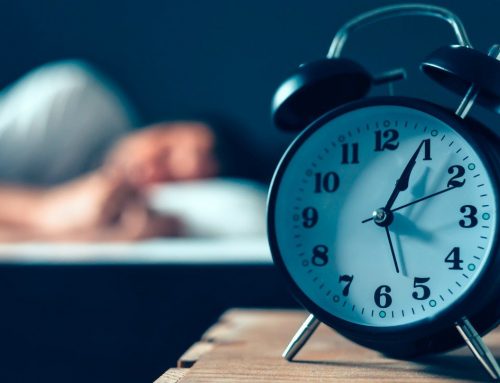We’re about to head into winter during one of the most difficult years most of us have ever experienced, and you might be feeling the effects of it, including the low energy, irritable mood, or the struggle to get out of bed in the morning. The Winter Blues, more formally known as Seasonal Affective Disorder (SAD), is a common and legitimate issue in climates that experience cold weather and limited sunshine during winter. Even people who don’t typically suffer from mental health concerns can experience this seasonal form of depression. For truck drivers, this can worsen the effects of stress and loneliness they may experience on the road.
Given our experiences during 2020 and the COVID-19 pandemic, we can all agree that worsened mental health is the last thing anyone needs right now, so staying on top of our mental health during this winter season is going to be more important than ever.
Fortunately, there are several things we can do to lessen the symptoms and feel more like our usual selves, and none of them include having to fly across the continent!
- Limited sunlight exposure in the winter months means our bodies aren’t producing enough Vitamin D; this can cause our immune system, energy level, and mood to drop, contributing to SAD. Supplementing with 2000 IU of Vitamin D3 is a great way for adults to keep their sunshine vitamin levels boosted. Additionally, we can eat foods rich in Vitamin D, such as egg yolks, fatty fish, and liver. If you’re a long haul driver and drive south in the winter, be sure to get a little sun exposure (even 10 minutes) each day to let your body produce some Vit D naturally!
- Beyond just Vitamin D, overall good nutrition plays a critical role in both our physical health and mental health. This means getting a wide variety of whole foods, including colourful produce, unprocessed meats, healthy fats (think nuts, seeds, avocados, fish), and of course plenty of water. If you think your diet is lacking in variety, consider a high quality multivitamin to fill any nutrient gaps.
- Avoid hibernation and spend as much time as you can outdoors to get fresh air. This can help reduce stress, boost mood, improve sleep, increase oxygen levels, and more. Even if it’s chilly, bundle up and head out, and take some deep, cleansing breaths!
- Exercise helps to boost the “feel good” hormones in our bodies, which can directly impact our mood. Moving your body also helps improve sleep and energy levels, key factors in maintaining mental health. Aim for 150 minutes of exercise per week, or 30 minutes 5x/week. Bonus if it’s outside! Are you seeing how all of these are connected?
- Light therapy is a great option for reducing SAD symptoms, since daylight can be so limited during the winter months. Light therapy is available in many different versions, including light boxes, special light bulbs, and alarm clocks that simulate the sunrise (making it easier to get out of bed when it’s dark out).
- Laughing helps to lift our spirits and lessen our stress levels, and is a fun, simple way to help relieve SAD symptoms. Unwind with 30 minutes of a funny book, show, or even YouTube videos! You’ll instantly feel refreshed and more positive. Avoid negative news, shows, movies, and articles when possible to prevent them from unnecessarily weighing down your mood.
- In addition to the above tips which are directly related to SAD, it is crucial that you find your own sources of happiness this winter. Whether it’s a hobby, TV series, reading, rearranging your home, or even just cooking, dedicating more time to the things you love can make a huge impact on your mental health. If you haven’t found an enjoyable routine or set of socially-distant activities yet this year, now is the time.
There are many benefits to living as far north as we do in Canada, but our lack of sunlight in the winter certainly isn’t one of them. The best we can do is take advantage of the sunlight we do get, keep our body primed and nourished, and put an extra focus on the activities that make us happy throughout the long, cold months.
If at any time your SAD symptoms or mental health become serious or unmanageable, contact your doctor or local mental health center as soon as possible. If you need immediate assistance, go to your nearest hospital or call 911.






Leave A Comment